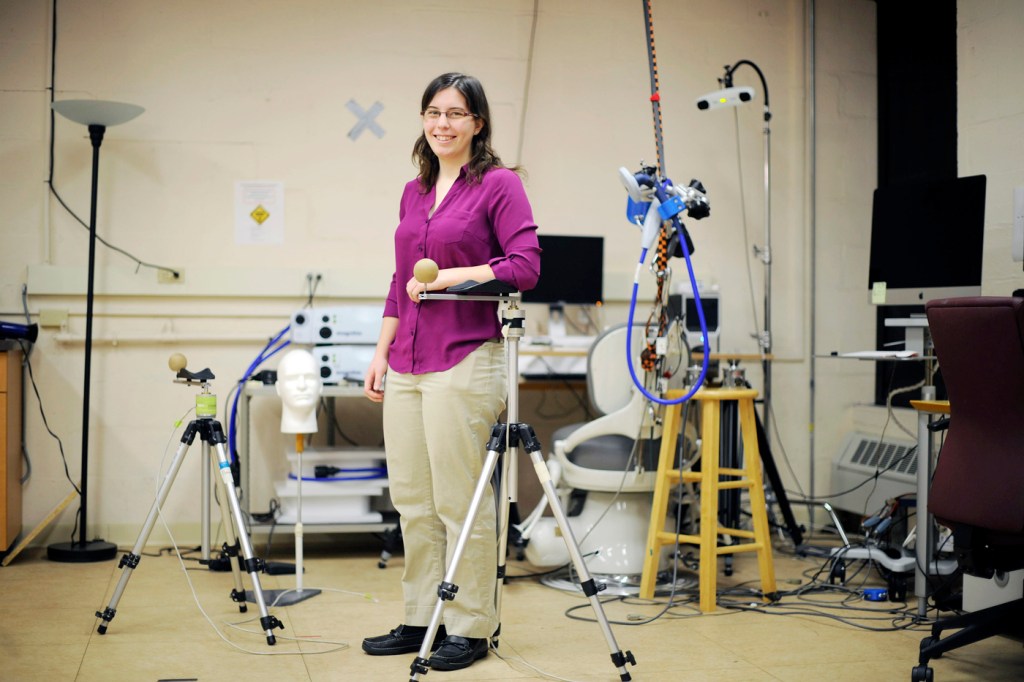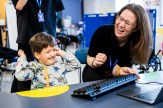Honors student wins Marshall Scholarship

Julia Ebert, S’15, has won a Marshall Scholarship to pursue a one-year master’s of research in bioengineering at Imperial College London starting in the fall.
Founded by the British government in 1953 to commemorate the Marshall Plan, the postgraduate scholarship allows up to 40 intellectually distinguished American students to study in the United Kingdom each year.
Ebert is Northeastern’s second student to receive the award, whose 2015 winners were announced last week. “It’s an honor to receive the Marshall Scholarship and it shows that all the work I have done up to this point has paid off,” said Ebert, a fifth-year behavioral neuroscience major who applied for the scholarship through the university’s Office of Fellowships.
Her academic journey began in high school, when her passion for learning led her to pursue the International Baccalaureate’s psychology course. “I got really interested in psychology,” she said, “and I wanted to take a more scientific approach to understanding the brain.”
Over the past four years, Ebert—a member of the University Honors Program and the University Scholars program—has fine-tuned her academic focus through research positions and co-op jobs in campus labs and far-flung countries. In the fall of 2011, she started working as a research assistant in Northeastern’s Action Lab, which is dedicated to the experimental and computational study of human motor control. Under the direction of professor Dagmar Sternad, she collected and analyzed data from human participants in motor control experiments and subsequently won a Barry Goldwater Scholarship for her research achievements. She is currently finishing her undergraduate thesis on learning and long-term retention of a bimanual skill.
“Julia has the makings of an excellent scientist,” said Sternad, a professor of physics, biology, and electrical and computer engineering. “She is extremely bright, works independently, and is self-motivated.”

Photo by Matthew Modoono.
Ebert’s next experiential learning opportunity—a research co-op in the autonomous motion department at the Max-Planck Institute for Intelligent Systems in Tübingen, Germany—kindled her interest in robotics and machine learning. There, she designed experiments using the CyberGlove, an input device that measures 19 joint angles in the hand and can be used to test how humans learn to control a high-dimensional system. “Conducting research has given me insight into how my course work fits together,” said Ebert, who added a computer science minor following her initial experience in the Action Lab. “I started taking more math classes and learned how to program, which has enabled me to do more technical modeling.”
As a Marshall Scholar, Ebert hopes to work in Dr. Etienne Burdet’s human robotics lab, which aims to design assistive devices and virtual reality-based training for rehabilitation and surgery. After London, she plans to return to the U.S. to earn her doctorate in biomedical engineering with the goal of becoming an academic researcher.
Ebert summed up her career ambitions in her personal statement for the Marshall Scholarship application, writing that “My desire to learn has already led me to a field that draws on my interests in everything from music to math. Now I want to expand on my passion for neuroscience not only to solve the mystery of learning, but to employ that information to improve lives.”





